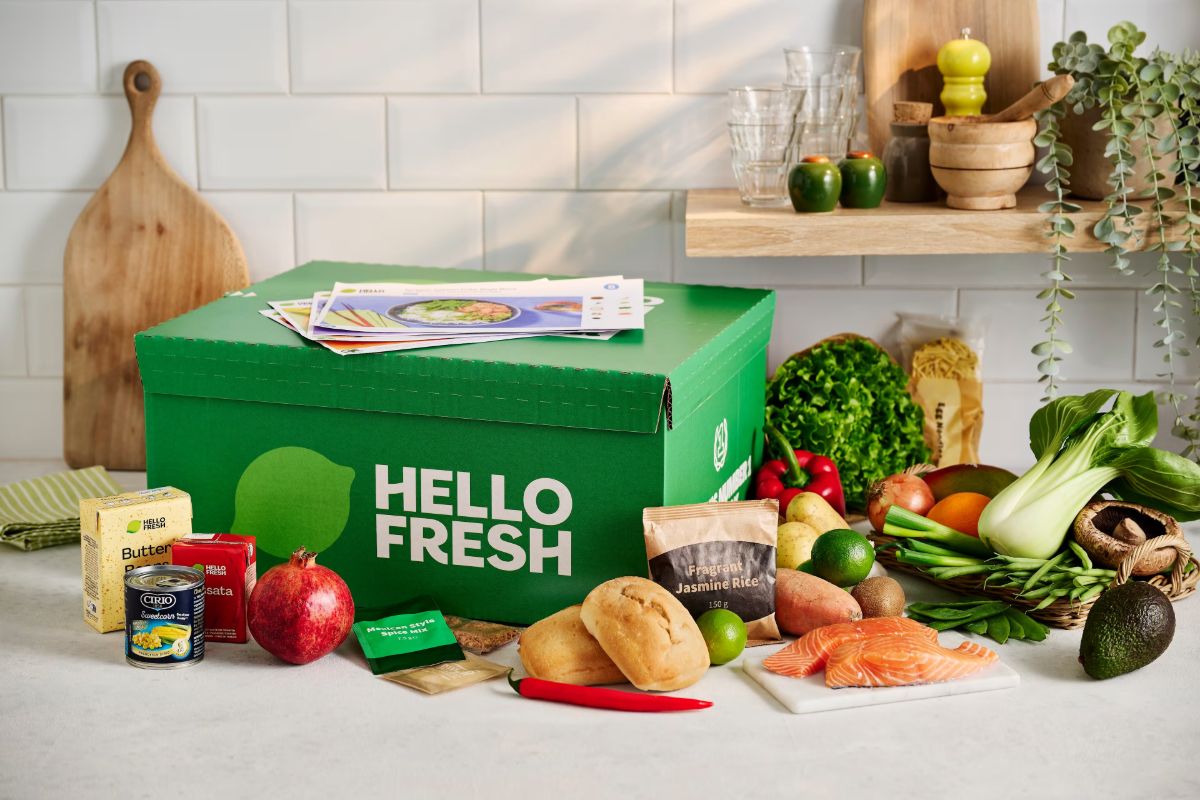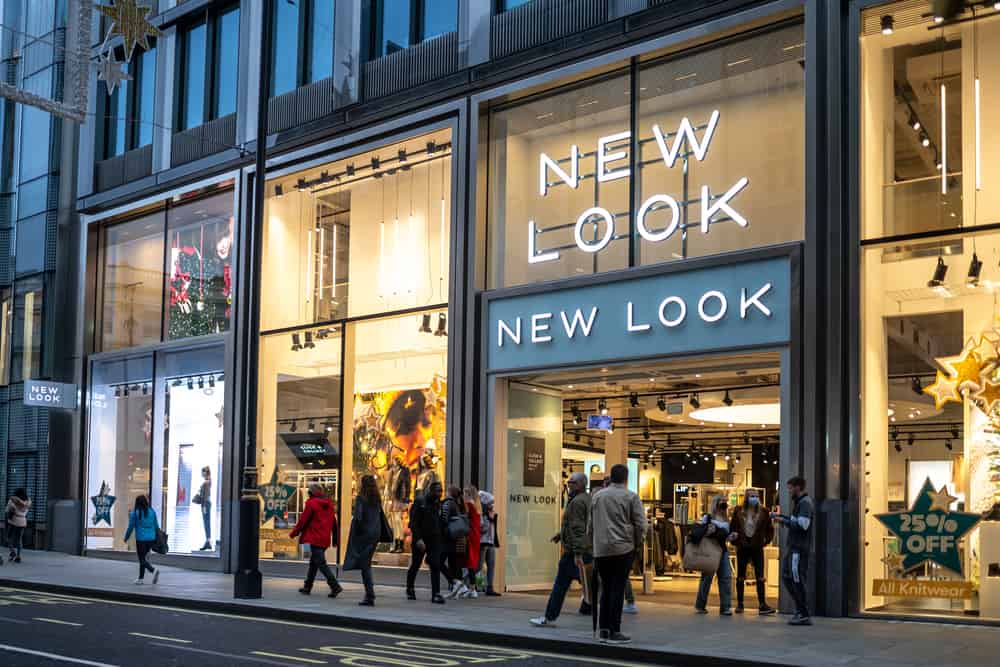The number of people visiting UK shops during the 2020 Christmas peak shopping season will be sharply down on last year as shoppers opt to buy online instead, new figures suggest.
Springboard says the second lockdown, announced at the weekend, will be “catastrophic” for the industry – and it has recalculated its Christmas forecast to show the added impact – taking the predicted fall to -62% across UK shopping locations in the six weeks from Sunday November 22 to Sunday December 26, from -32.7% previously.
In England alone, it expects that during the lockdown period itself – between November 5 and December 2 – high street footfall will be down by 87.3% on last year, and across all locations footfall will be down by 78.8%.
Shoppers yesterday queued to make purchases before non-essential shops close once more in England this Thursday. By then, Primark owner Associated British Foods says 57% of its shops will be closed once more – in markets including England, Wales, Northern Ireland, France, Belgium, Slovenia, and Catalonia in Spain. It predicted today that it would lose £375m as a result.
Non-essential shops in Wales (November 9) and Northern Ireland (November 11) are both scheduled to reopen sooner than those in England, while Scotland has now introduced a five-tier system where non-essential retailers are closed from level 4 upwards. As yet, no areas are yet in that level.
The British Retail Consortium (BRC) says the news of the closure represents “a nightmare before Christmas” – and one that it thinks is unnecessary.
BRC chief executive Helen Dickinson said: “It will cause untold damage to the high street in the run up to Christmas, cost countless jobs, and permanently set back the recovery of the wider economy, with only a minimal effect on the transmission of the virus.
“A recent Sage paper reported that closing ‘non-essential’ retail would have minimal impact on the transmission of Covid. This is thanks to the hundreds of millions of pounds retailers have spent making their stores Covid-secure and safe for customers and colleagues.
“The announced closure will have a significant economic impact on the viability of thousands of shops and hundreds of thousands of jobs across the country. The previous lockdown cost ‘non-essential’ shops £1.6 billion a week in lost sales; now that we are entering the all-important Christmas shopping period, these losses are certain to be much bigger.
“We have no doubt that retailers will comply with the rules and play their part to ensure the British public can remain safe and have access to the goods they need. Nonetheless, Government must also play its part, providing support to businesses that will be forced to close, otherwise the consequences for local retail will be dire.”
Footfall predictions in detail
Springboard now predicts that footfall over the six weeks from Sunday November 22 to Sunday December 26 will be down by 70.3% on high streets, compared to the same time last year, and by 63.3% at shopping centres, according to predictions from business intelligence specialist Springboard. It says that the number of people visiting retail parks (-42.8%) will also be down, although somewhat less sharply. Overall, it expects shopper numbers to be 62% lower than 2019 over the peak shopping period. The figures have been recalculated following Saturday’s announcement of a second lockdown.
In England alone, it expects that during the lockdown period itself – between November 5 and December 2 – high street footfall will be down by 87.3% on last year, and across all locations footfall will be down by 78.8%.
Looking ahead to December 27, Springboard expects footfall will be down by 42.3% overall, compared to the same day last year – across high streets (-70.3%), shopping centres (-41.7%) and retail parks (-21.7%).
It says it will be important for shops to be open in the key December weeks, since footfall usually builds from the first week of November by an average of 3% a week. That means, says Springboard, it’s important that shops are able to open before Christmas.
“The national lockdown restrictions will now see our struggling retailers miss out on the start of essential weeks of Christmas trading, including Black Friday weekend as non-essential retail remains closed until December 2 at the very earliest,” said Diane Wehrle, insights director at Springboard. “Although restrictions may ease in December, this is by no means guaranteed as the second wave of Covid-19 ripples throughout the UK. Most consumers are likely to have completed a vast amount of shopping online in advance and may well have fears of returning to bricks and mortar stores, however retailers need to be given the opportunity to reopen ahead of Christmas.
Shoppers set to move online instead
Instead, Springboard draws on a survey of 1,000 shoppers, in the Springboard-AL Marketing Unwrapping Christmas with Covid 19 report – carried out before the latest lockdown was announced – to suggest that 61.2% will spend more online, while 20.4% will spend more from bricks and mortar stores.
It also found that 68.6% of shoppers plan to buy earlier this year in the light of Covid-19 restrictions – while many may opt to see family and friends who they could not spend Christmas with on Boxing Day and on December 27 rather than visiting shops. That means that key dates such as Black Friday will, Springboard suggests, have less significance this year. Of those that do buy on Black Friday – and 49.8% say they are not interested – 65.1% will shop online on Black Friday more than in stores, and 14.6% will make a special visit to shops.
Most (63.5%) plan to spend less this Christmas than last, however – with only one in 10 intending to buy more presents. Instead, there will be a focus on staying in to enjoy family time.
Large city centres will see the sharpest decline in footfall (-53.5% on 2019) while there are expected to be 26.7% fewer visitors to smaller high streets. Smaller and local shops are set to win more business from 62.8% of shoppers. Higher levels of restrictions will hit footfall in Wales (-43.3%), Scotland (-41.2%) and Northern Ireland (-46.1%).
Research from LovetheSales.com suggests that UK shoppers will break Black Friday records this year. It questioned 1,000 shoppers and found that eight in 10 say they are planning to buy online on Black Friday (November 27), with seven in 10 planning to do all their Christmas shopping that day. It predicts that UK online spend for the Black Friday weekend will increase by 40% to £5.3bn – up from £3.8bn last year, and that shoppers will spend more online (£5.3bn) over that weekend than they do in-store (£4.1bn) for the first time.
Respondents to its survey tell it that they have set aside an average £212 to spend on Black Friday – 36% from last year’s average of £156. Meanwhile, LovetheSales’ own data suggests that retailers are ramping up deals early, with 15% more deals online now, compared to this time last year and 72% of online products are predicted to drop in price over the Black Friday weekend.








